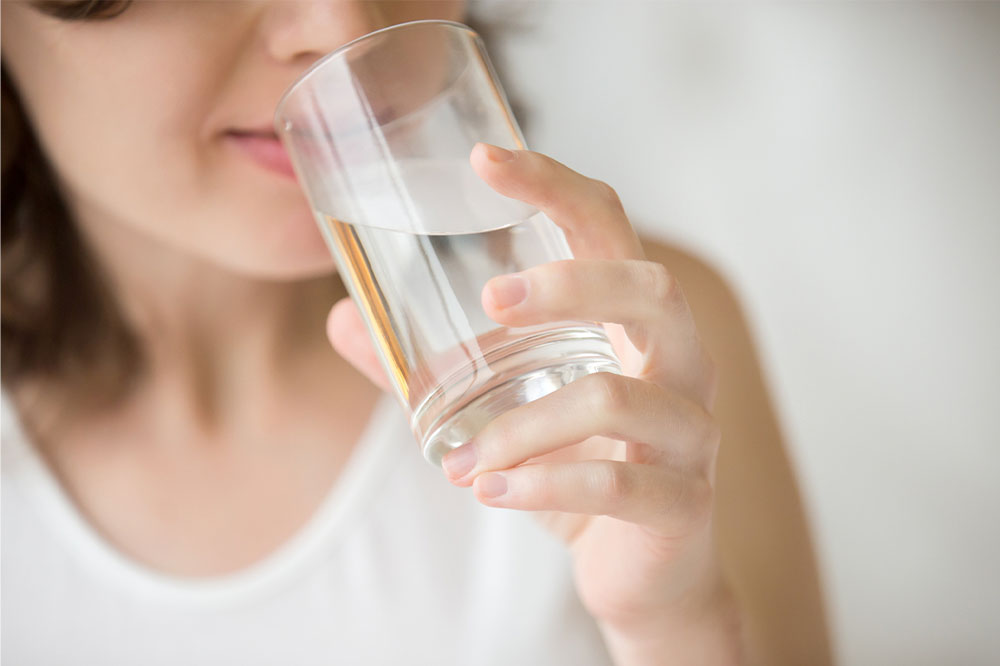
Top 7 times to drink water
It is common knowledge that drinking water daily is necessary for the body to function correctly. It promotes efficient digestion, breathing, heart, liver, and brain function. Although you are recommended to drink eight glasses of water daily, drinking water otherwise at specific times may benefit your overall health and bodily function. Therefore, here are the best times to drink water to reap the most health benefits to avoid feeling drained or dehydrated.
Best time to drink water
Shortly after waking up
Drinking water right away after waking up has many benefits. It hydrates the body after the sleep cycle, prepares stomach lining for food absorption, and prepares the body and brain for the day. Consuming water in the morning helps your skin and hair stay healthy. Additionally, drinking water before your first meal of the day will help flush out any toxins.
Pre and post workout
Drinking water is crucial before exercising to avoid being dehydrated as it energizes the body and contributes to a productive training session. Similarly, drinking water immediately after working out is essential as it replenishes the fluids and electrolytes lost during perspiration. Post workout, muscles warm up, and the body sweats to release heat, so ensure the body stays hydrated.
Before bedtime
A glass of water one hour before bed reduces the chance of experiencing a heart attack brought on by dehydration during the night. It also helps prevent morning dehydration caused by a 7-hour sleep gap. Also, drinking water before bed helps replenish any fluid loss during the night.
Before meals
Drinking water 30 minutes before meals makes one feel fuller and prevents them from overeating. It also controls digestion and gets the stomach lining and intestines ready for digestion. Moreover, it aids in the breakdown of digestive fluids and allows the body to absorb nutrients properly.
During illness
Consuming water and other fluids during any illness speeds up the healing process. Vomiting, diarrhea, and fever can all cause excessive water loss. It might also result in a loss of appetite. In such cases, it is best to drink as much water as possible to replenish the body with extra fluids. It is also advised to avoid dehydrating beverages such as coffee and tea.
When feeling exhausted
Drinking water when tired can help you feel better and boost your energy. Drinking water instead of coffee in the afternoon, when most people are sleepy or need a nap, help them resume work with a clear mind. For example, coffee consumption six hours before bedtime may disrupt sleep and cause agitation.
During migraines or headaches
Headaches and migraines can cause severe pain in the body. These two problems are both common symptoms of dehydration. Increasing water intake and getting enough sleep during these times can significantly reduce the discomfort’s severity, frequency, and duration.
Conclusion
Water can sometimes taste bland; therefore, adding cucumber slices, strawberries, or slices of other fruits can improve its flavor. Using attractive drinkware or glassware from the Yeti official store may also help people remember drinking water regularly.
Also, check out great deals and promotions on reusable water bottles popular now. Explore a variety of stainless steel, plastic, and BPA-free water bottles featured across brands like Adidas, Under Armour, and Contigo, designed for daily use.
You can choose from multiple types of packaged drinking water. For instance, sparkling water is a carbon dioxide-infused drink that provides refreshment and improves digestion. You can also get strawberry-, grapefruit-, or even mango-flavored sparkling water. Alternatively, electrolyte-infused water has electrically charged minerals such as sodium, calcium, potassium, and magnesium to help restore energy, say after an intense workout.







